The Seventh Cross

Brief Synopsis
Cast & Crew
Fred Zinnemann
Spencer Tracy
Signe Hasso
Hume Cronyn
Jessica Tandy
Agnes Moorehead
Film Details
Technical Specs

Synopsis
In the fall of 1936, seven prisoners from a Westhofen, Germany, concentration camp escape into the night: wise Ernst Wallau; schoolteacher Pelzer; Bellani, a once-renowned acrobat; Aldinger, an old farmer; Jewish grocery clerk Beutler; Fuellgrabe, a novelist; and rugged George Heisler, the victim of repeated torture. Before separating, Wallau and Heisler make plans to meet in Mainz at the home of Wallau's friend Rudolf Schenck. Wallau is soon caught, however, and interrogated by the camp's commandant, Overkamp, but reveals nothing. After the badly beaten Wallau is affixed to a crudely made crucifix, Overkamp declares that the remaining six escapees will suffer the same fate. As Wallau dies, his spirit leaves his body and sees George, in whom he has great faith, making his way across a field. On his way to Mainz, George enters a farming village and cuts his hand on some glass shards that have been imbedded in the village walls. He then steals a coat out of a shed and is forced to hide in a wood pile after police storm the streets in search of him. The police instead find Pelzer, who quickly becomes Overkamp's second victim. Exhausted and hungry, George arrives in Mainz the next day and, unable to continue to Schenck's address on the other side of town, rests in a church. Elsewhere, Franz Marnet, an old friend of George, who until recently had been living in Berlin, meets with Leo Hermann, the leader of the local resistance movement. Aware of George's plight, Marnet solicits Leo's help in getting him money and a passport, but neither man knows how to contact the fugitive. George is sure that all of his known friends and associates are being watched, so he goes to see Leni, the woman with whom he was romantically involved prior to his arrest. Although Leni once swore to wait forever for George, she is now married and refuses to help him in any way. Despondent, George wanders into the street, where he sees Bellani being pursued across some rooftops. As a bloodthirsty crowd watches, Bellani is shot and cornered, then proudly jumps to his death. After George staggers away from the gruesome sight, he notices the Marelli Theatre Shop and goes inside. Recalling that Bellani was planning to get new clothes from costumer Mme. Marelli, George explains that the acrobat is not coming but would like him to take the items. Sensing George's situation, Mme. Marelli not only gives him the clothes but slips some money into his coat pocket as well. Mme. Marelli also advises him to have her neighbor, Dr. Loewenstein, look at his hand. Like Mme. Marelli, Loewenstein, a Jew, deduces George's situation, but tends to his badly infected hand. The feverish George then sees that Overkamp has printed his photograph in the newspapers and grows increasingly nervous. When George finally arrives at Schenck's apartment, he learns from a neighbor that Schenck was arrested by the Gestapo the previous day. In total despair, George returns to the street and is followed into a courtyard by a suited man, who turns out to Fuellgrabe. After revealing that they are the only two escapees still alive, Fuellgrabe declares that he is turning himself in and suggests that George do the same. George refuses to give up and, while the police broadcast his current description, which has been provided by Schenck's neighbor, over a public address system, he makes his way to Paul Roeder, the only friend he knows with no anti-government background. Unaware that George is a fugitive, Paul, a factory worker, and his wife Liessel welcome him into their home. The big-hearted if politicially naïve Paul soon deduces that George is in trouble and insists that he stay the night. The next morning, Paul goes to see Bruno Sauer, an architect who once pledged to help George if he were ever in special need, but Sauer turns Paul away without learning his name or George's whereabouts. Later, however, a contrite Sauer, whose wife Hedy has condemned him as a coward, visits Marnet and Leo, and tells them about Paul's visit. From Sauer's description, Marnet deduces Paul's identity and inquires about his address at a local market. Before Marnet, who has arranged passage for George on a Dutch boat the next night, arrives at the Roeders', Liessel reveals that a stranger was asking about them at the market. Sure that the police are on to him, George insists on leaving the Roeders' and is taken by Paul to an inn where Fiedler, Paul's trusted co-worker, has arranged a room for him. When Fiedler reveals that he may have seen Marnet with mutual friend Wilhelm Reinhardt, Paul offers to drop by Reinhardt's the next morning and discreetly inquire about Marnet, who he hopes can help George. As Paul is leaving home the next day, however, he is picked by the Gestapo. Although Marnet, who witnessed Paul's arrest, tells Leo that he will "crack," Paul is released that night, having revealed nothing. Paul then goes to Reinhardt's and happily discovers Marnet there. Later, at the inn, George receives a passport and sailing instructions from delicatessan owner Poldi Schlamm, a resistance volunteer sent by Marnet. George is then warned by Toni, a sympathetic maid with whom he has fallen in love, that the Gestapo are at the inn. Toni hides George in her room until the Gestapo leave, and while he is waiting for his departure time, she confesses her love for him. Although he insists that he will return for her, Toni knows she will never see George again. When Toni asks him what he plans to do in Holland, George says that he wants to repay all the people who helped him. Declaring that he finally understands what Wallau tried to teach him about faith in "the souls of men" and their "God-given decency," George kisses Toni goodbye and boards his boat to freedom.

Director

Fred Zinnemann
Cast

Spencer Tracy

Signe Hasso

Hume Cronyn

Jessica Tandy

Agnes Moorehead
Herbert Rudley

Felix Bressart
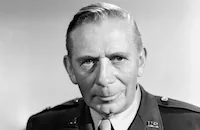
Ray Collins

Alexander Granach
Katherine Locke
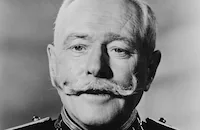
George Macready
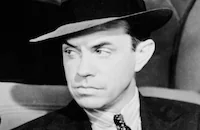
Paul Guilfoyle

Steven Geray
Kurt Katch

Karen Verne
Konstantin Shayne
George Suzanne
John Wengraf

George Zucco
Steven Muller

Eily Malyon
Fay Wall
William Challee
John Meredith
Ludwig Donath
Frank Jaquet
Lotte Stein
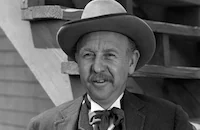
Charles Arnt

Connie Gilchrist
William Edmonds
Martin Berliner
Paul E. Burns
Lionel Royce
Helene Thimig
Norbert Muller
Frederick Giermann
Hans Herbert
Helene Weigel
Larry Olsen
Lisa Golm
Irene Seidner
Lotte Palfi
Giselle Werbiseck
Barbara Norton
Eilene Janssen

Ghislaine Perreau
Gary Taylor
Jim Hawkins
Carol Hartsook
Tom Brannigan
Buddy Swan
Don Brown
Boots Brown
Kenneth John
William Tannen
Preben Storn
Hans Furberg
John Peters
Jack Semple
Paul Kruger
Boyd Bennett
Nick Vehr

Charles Mcgraw
Leon Tyler

Bobby Blake
Hugh Beaumont
Capt. John Van Eyck
Bob Brown
Bill Cartledge
Dick Hirbe
Larry Lathrop
George Noisom
Egon Brecher
Margaret Fealy
Hallene Hill
Laura Lane
Lynne Arlen
John Eppers
Oscar Williams
Albert Godderis
Egon Lind
James Dime
Herbert Holcomb
Fred Nurney
Otto Reichow
Hans Von Morhart
Holger Bendixen
Roger Neury
Edna Hall
Jerry Jerome
Joe Chambers
Mary Bovard
John Mccallum
Lisl Valetti
Walter Rode
Walter Voegler
Nolan Leary
John Piffle
Hugh Maguire
Michael Miller
Charles Fogel
Mitchell Lewis
Earl Schenck
Wes Howard

Joe Yule
Tony Carson
Henri Reineque
Louis Hart
Alex Schonberg
Mike Macy
Art Fowler
Clifford Rathjen
Allen Fox
George Magrill
Brent Shugar
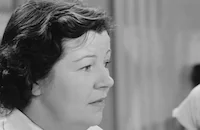
Margaret Bert
Frank Hagney
Daniel De Jonghe
Victor Metzetti
Jack Mannick
Kurt Furberg
Edgar Licho
Will Kaufman
Boots Kaye
Crew
Mac Alper
Constantin Bakaleinikoff
Pandro S. Berman
Jack Dawn
Helen Deutsch
Karl Freund
Cedric Gibbons
Horace Hough
Irene
Thomas Richards
Douglas Shearer
Roy Thomas
Leonid Vasian
Roy Webb
Edwin B. Willis

Photo Collections
Videos
Trailer
Hosted Intro
Film Details
Technical Specs

Award Nominations
Best Supporting Actor
Articles
The Seventh Cross
The film follows seven escapees from a concentration camp as they try to reach the Dutch border. The camp commandant has vowed to capture the men and hang them on makeshift crosses in the prison yard. One by one the crosses are filled with victims, but the seventh remains empty. That one is earmarked for George Heisler (Tracy), a man made bitter, paranoid, and ravaged by his time in the camps (although as some critics observed about Tracy's appearance, he must have been eating rather well). As he makes his way to the border, barely eluding the Gestapo over and over, Heisler finds there are few people he can trust, even former friends. But thanks to the bravery of a few, he manages not only to reach safety but to have his faith in humanity restored.
The production was not an easy time for Tracy. He had expected to follow his role in the war movie A Guy Named Joe (1943) with a third teaming with Katharine Hepburn in the comedy Without Love (eventually released in 1945). But Hepburn was tied up with the Asian epic Dragon Seed (1944), so the studio cast him in this dark drama, requiring him to be on screen almost the entire time, often having to convey the story and emotions without words. Although always reserved and often very moody, Tracy was more depressed than usual during filming, shaken by the recent deaths of several people close to him, including his mother, stage legend George M. Cohan (from whom Tracy had learned some valuable early acting lessons), character actor and pal Lynne Overman, and Carole Lombard, the beautiful star killed in a plane crash during a war bond tour. To top it off, Tracy received a telegram from the War Department on the set one day; Eddie Carr, a young orphan he met at Boys Town during the making of the 1938 film of the same name, had been killed on the battlefield. Carr had listed Tracy as his next of kin. But although Tracy could often be sullen and belligerent on the set, especially when he was drinking, according to the accounts of Zinnemann and co-stars Hume Cronyn and Signe Hasso, he was an inspiration to work with. Zinnemann had special reason to admire the actor. Although he rarely gave interviews, Tracy agreed to do publicity for the picture, praising Zinnemann lavishly enough to boost the director's career considerably. Zinnemann went on to win Oscars for directing From Here to Eternity (1953) and A Man for All Seasons (1966) and was nominated five other times.
The only Oscar nod for The Seventh Cross went to supporting actor Hume Cronyn in his fifth film release (he lost to Barry Fitzgerald). His wife in the film was played by his real-life wife, British actress Jessica Tandy, making her first American film appearance. The two played a simple German couple who, though not Nazi party members, were happy that Hitler's regime had turned the country around and provided employment again. The movie is marked by that sort of complexity of characterization; in fact, some criticized it upon its release for being too soft on the people of a country with which we were at war. But Zinnemann and screenwriter Helen Deutsch went to some pains to preserve novelist Anna Seghers' view of ordinary Germans. They were able to achieve greater authenticity by casting, in minor roles, some refugees who had been very famous in their own country but little known here. One was Helen Thimig, wife of acclaimed theater director-producer Max Reinhardt and one of Germany's most important actresses. Another was Helene Weigel, Bertolt Brecht's wife, and one of the leading lights of the famous Berliner Ensemble. Neither performer was credited in The Seventh Cross.
Director: Fred Zinnemann
Producers: Pandro S. Berman, Edwin H. Knopf
Screenplay: Helen Deutsch, based on the novel by Anna Seghers
Cinematography: Karl Freund
Editing: Thomas Richards
Art Direction: Leonid Vasian, Cedric Gibbons
Original Music: Roy Webb
Cast: Spencer Tracy (George Heisler), Signe Hasso (Toni), Hume Cronyn (Paul Roeder), Jessica Tandy (Liesel Roeder), Agnes Moorehead (Madame Marelli), Herbert Rudley (Franz Marnet), Felix Bressart (Poldi Schlamm), George Macready (Bruno Sauer), Ray Collins (Wallau), Steven Geray (Dr. Loewenstein).
BW-112m. Closed captioning.
by Rob Nixon

The Seventh Cross
Quotes
Trivia
Notes
Voice-over narration spoken by Ray Collins as the spirit of character "Ernst Wallau" is heard intermittently throughout the film. Onscreen credits list Steven Geray's character name as "Dr. Loewenstein," although in the film itself his name is spelled "Lowenstein." According to reviews and director Fred Zinnemann's autobiography, Anna Seghers, on whose novel the film is based, was a German refugee who escaped from Nazi Germany to Mexico. Hollywood Reporter news items provide the following information about the production: In September 1942, after a deal involving Twentieth Century-Fox fell through, the book was withdrawn from the film market. Director/producer Otto Preminger then purchased the rights to it, intending to produce it as a stage play. Viola Brothers Shore was hired to write the stage adaptation in collaboration with Seghers, but no information regarding a theatrical production of the book has been found. William Dieterle was first announced as the film's director.
The Seventh Cross marked Zinnemann's first major directing assignment. Stage star Jessica Tandy made her American screen acting debut and Katherine Locke made her screen debut in the film. The Seventh Cross also marked the first time in which Tandy and real-life husband Hume Cronyn appeared together onscreen. Hollywood Reporter announced in November 1943 that M-G-M was hoping to sign Pola Negri for a featured role, but she did not appear in the completed film. Some scenes were shot in orchards near Riverside, CA, according to Hollywood Reporter. According to an October 1944 Life magazine article, M-G-M arranged an elaborate publicity contest for the picture in which a "wanted poster" featuring a photograph of Tracy's stand-in, Roy Thomas, was plastered around seven U.S. cities, including Boston and San Francisco, and a $500 war bond was offered to the first person in each city who spotted and reported Thomas. Thomas was spotted in all seven cities. According to Zinnemann's autobiography, Berthold Viertel helped cast the film. Zinnemann also noted that Robert Surtees took over as director of photography for a few days when Karl Freund became ill. Hume Cronyn received an Academy Award nomination in the Actor in a Supporting Role category.
















